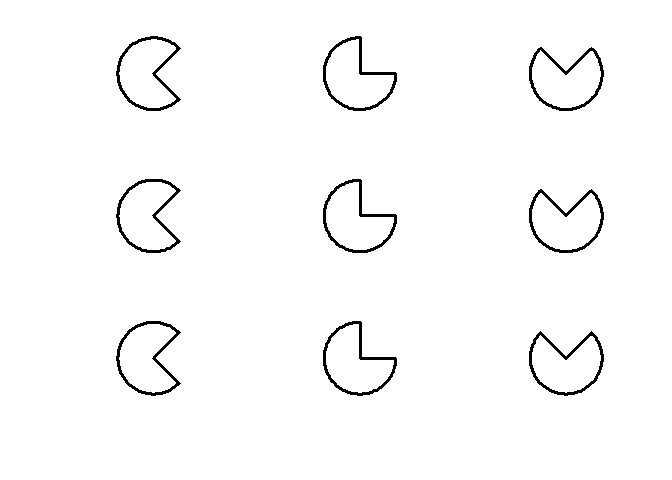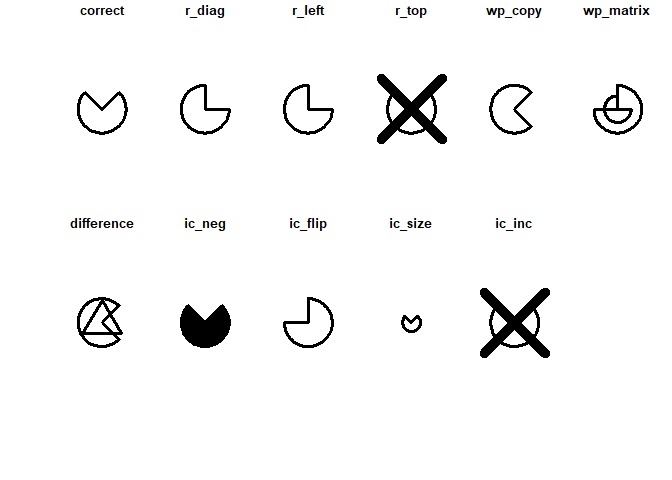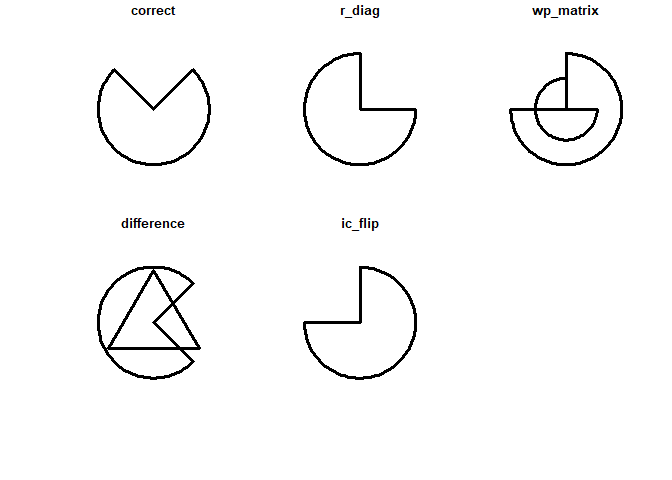Generates Raven-Like Matrices According to Rules.
matRiks
The goal of matRiks is to generate Raven-like stimuli according to rules. This package has been developed by Dr. Andrea Brancaccio and Dr. Ottavia M. Epifania.
What it does
The matRiks package is a convenient tool for generating Raven-like stimuli according to both logical rules (i.e., the relationships between the elements in the matrix are manipulated to create the matrix) and visuospatial rules (i.e., the visual or spatial characteristics of the elements are manipulated to generate the matrix). The response list associated with each matrix is generated as well, containing 11 response options (i.e., one correct response and 10 distractors) among which the users can choose the most apt for their aims. The distractors are bound to both the rules and the directional logic that have been used for generating the matrix. As such, not all the distractors can be generated for all the matrices. In case a distractor can not be generated for a given matrix, a warning is thrown and the distractors is covered by a thick black X.
Installation
You can install the development version of matRiks from GitHub with:
# install.packages("devtools")
devtools::install_github("OttaviaE/matRiks")
Example
This code provides an example on how to generate a basic matriks by using one figure (pacman()) and manipulating its rotation (rotate) horizontally:
library(matRiks)
#> Warning: il pacchetto 'matRiks' è stato creato con R versione 4.3.2
#>
#> Caricamento pacchetto: 'matRiks'
#> Il seguente oggetto è mascherato da 'package:methods':
#>
#> show
#> I seguenti oggetti sono mascherati da 'package:base':
#>
#> identity, replace
## Generate a simple matriks by horizontally rotating a pacman
my_mat <- mat_apply(pacman(), hrules = "rotate")
# draw the matriks
draw(my_mat)

Along with the matriks, its associated response list can be generated as well:
# generate the response list
responses <- response_list(my_mat)
#> Warning in repetition.matriks(obj): R-Top is equal to the correct response
#> Warning in ic_inc.matriks(obj): IC-Inc cannot be obtained with a single figure
# draw the response list and print the title of the distractors
draw(responses, main = TRUE)

Since two distractors cannot be generated given the rule and the directional logic used for generating the matriks, two warnings are thrown and the related distractors are crossed out by a thick black X.
This code print a small selection of distractors:
draw(responses, main = TRUE, distractors = c("correct", "r_diag", "wp_matrix", "difference", "ic_flip"))
